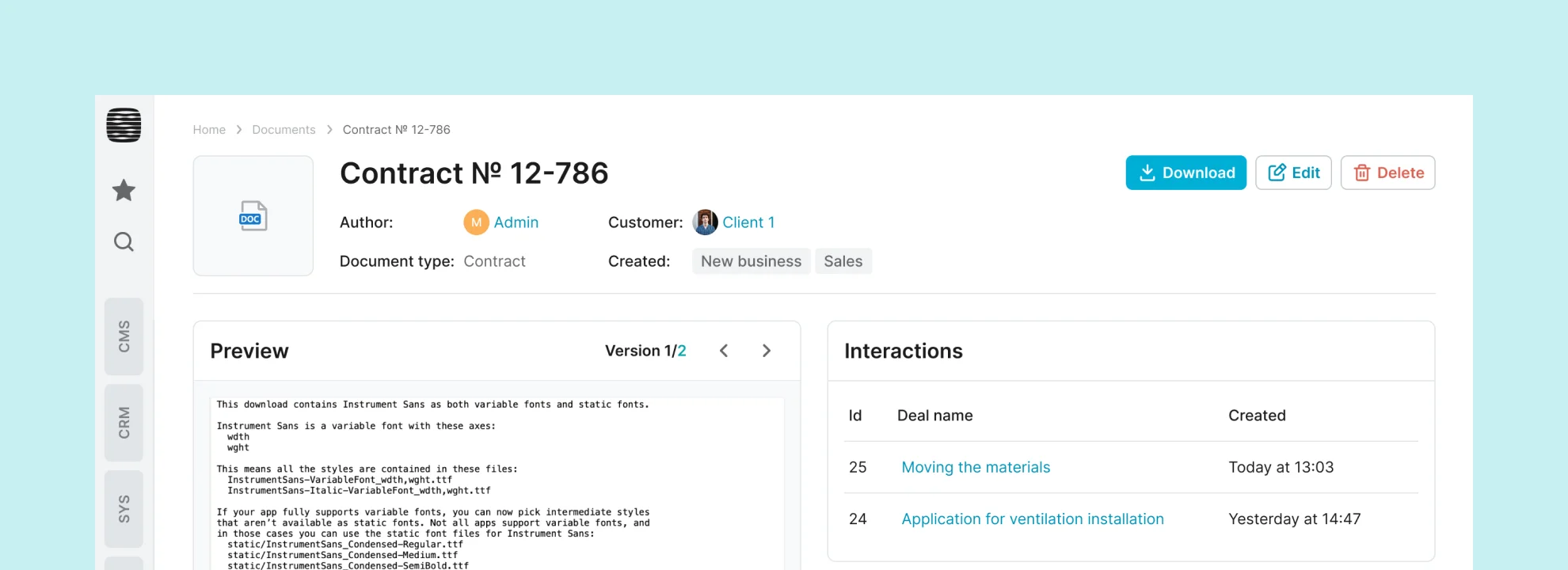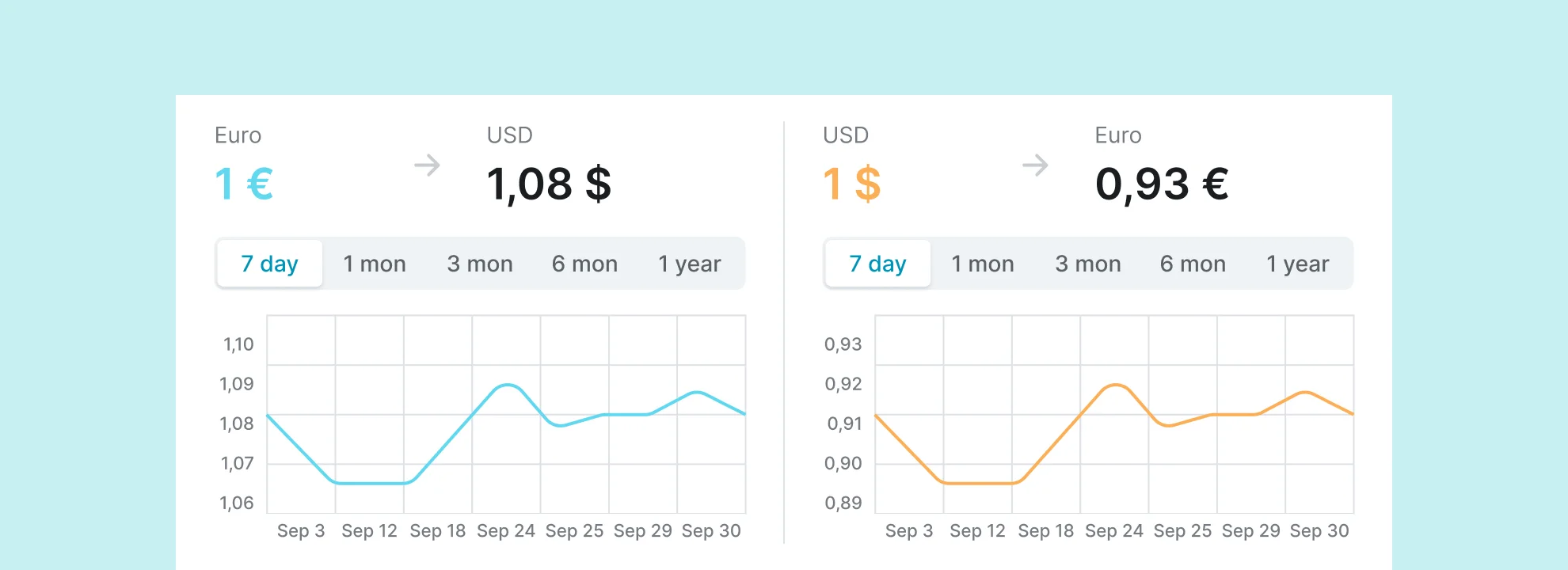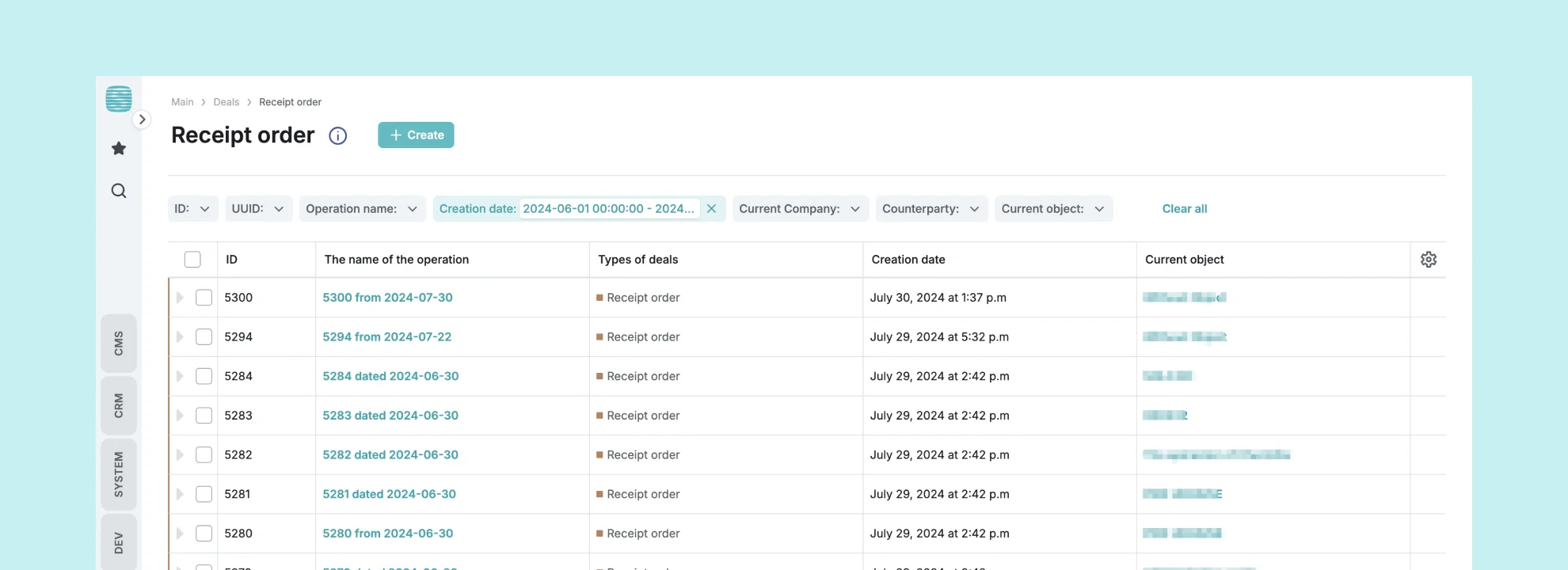Automation of
business processes
01
Optimization of
resources and costs
02
Product certification
management
03
Supply chain
synchronization
04
Implementation of an ERP system contributes to sustainable business growth through effective resource management
Key ERP functions for food production
Multilevel bill of
materials (BOM)
materials (BOM)
Control of product
manufacturing
manufacturing
Order processing
automation
automation
Procurement cost
optimization
optimization
Coordination with
suppliers
suppliers
Shift and work
schedule planning
schedule planning
Benefits of a custom ERP system for food production
Centralized management of orders, supply, procurement, and logistics
Multi-level bill of materials for managing complex production processes
Automated generation of financial reports, invoicing, and payment processing
Use of barcodes for inventory tracking and warehouse management
Real-time synchronization of supply chains with all partners
Resource optimization to support sustainable development strategies
Functional ERP modules for the food industry
Depending on your business needs and budget, you can choose the necessary functional modules of the ERP system to automate business processes:
Manufacturing management
Easily manage the lifecycle of food products: streamline planning, scheduling, and process control throughout every stage of food production
Procurement management
Simplify the procurement processes for food raw materials, ingredients, packaging supplies, and production equipment, and efficiently interact with suppliers
Order processing
Optimize the processing of orders for various products and components, align delivery timelines with production schedules, and automate invoicing

Financial management
Automate budget management and track expenses for raw materials, packaging, and production line maintenance. Generate financial reports based on various parameters

Maintenance management
Create maintenance and repair schedules for equipment, coordinate with service contractors, and maintain documentation and technical records
Inventory management
Track stock levels in real time, monitor the quantities and expiration dates of raw materials and finished food products, and manage the placement of goods
Supply chain management
Manage logistics processes: from coordinating with suppliers and placing orders for raw materials to warehouse management and monitoring transportation costs

Human resources management
Create work schedules, manage payroll, manage employee training and certification, and ensure compliance with safety standards and regulatory requirements
Manufacturing management
Easily manage the lifecycle of food products: streamline planning, scheduling, and process control throughout every stage of food production
Procurement management
Order processing
Financial management
Maintenance management
Inventory management
Supply chain management
Human resources management
Custom software development for manufacturing with FreshTech
Optimize production, supply chain, warehouse, and documentation management. Fast deployment based on the low-code platform Spiro: only the necessary functional modules for the efficient operation of your company
Energy industry Electronics and electrical engineering Light industry Metalworking industry Production of wood and paper Production of consumer goods Chemical industry Production of building materials Cosmetics and perfumery Engineering Production of furniture and fittings Pharmaceuticals and medicine Automobile industry Food industry
Frequently Asked Questions
What are the benefits of implementing a custom ERP system for the food industry?
Is it possible to integrate ERP with other systems and applications?
What manufacturing management functions does an ERP system include?
What is a Multi-Level BOM?
What are the benefits of deploying on Spiro low-code platform?
How do you implement an ERP system with Spiro?
What is the cost of ERP development for the food industry?
We'll create
an ERP system for your business
Our manager will contact you.

















